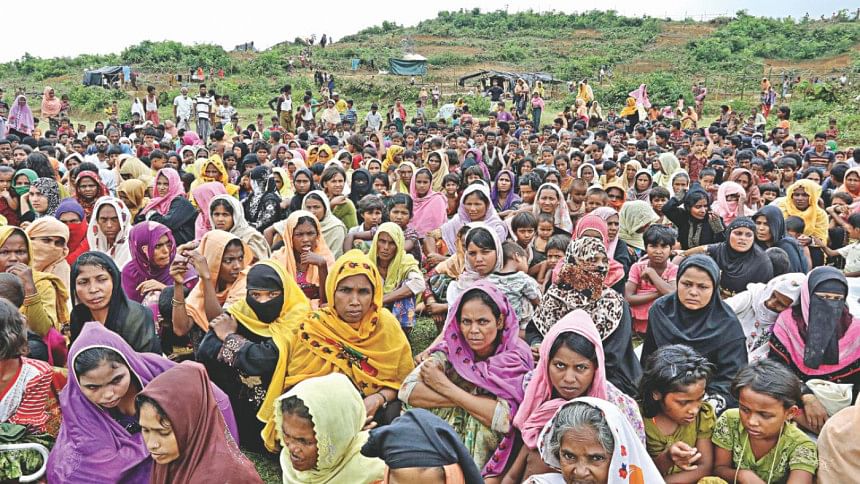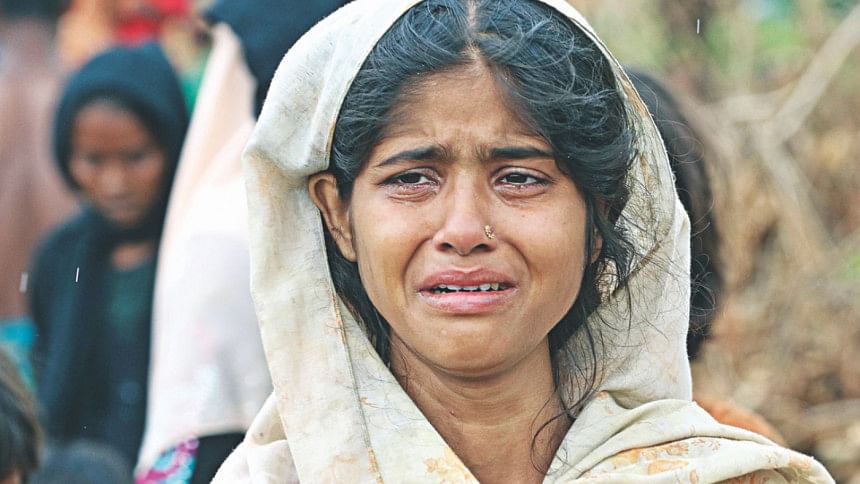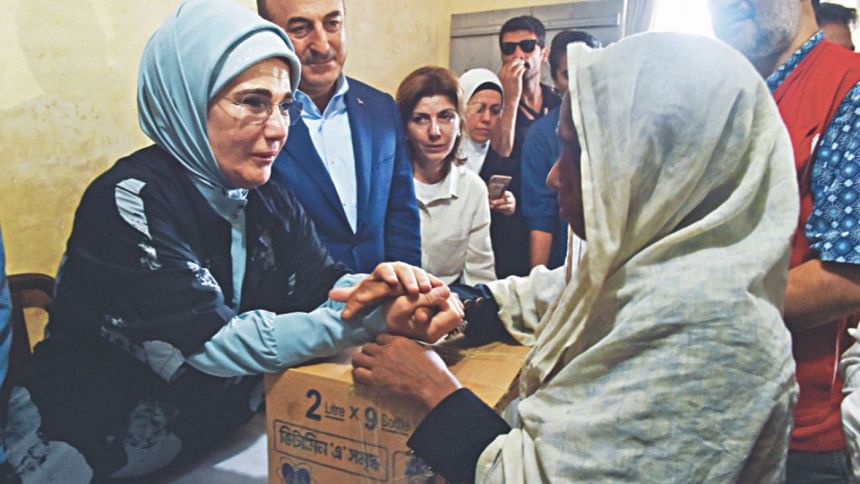Caught in the thick

Indian Premier Narendra Modi's stance on the Rohingya issue has emerged as another example of how the plights of the ethnic minority get trampled at the altar of geo-political considerations.
China's support for Myanmar in whatever it does regarding the Rohingyas also fits into the same picture.
As these two superpowers position themselves on the issue, the haze lifts -- the most persecuted people of modern times, the Rohingyas, have a dark future.
A complex mesh of military, economic and strategic issues now stand solid before the Rohingya issue.
China, for example, holds the biggest influence on Myanmar and also has stakes in energy, in its ambitious $1 trillion "one belt, one road" project, in securing a military base in the deep sea to have a sway over the Indian Ocean, and in ensuring that Muslim extremists cannot threaten either of the countries.
As relations with the US turned bitter over the South China Sea, China now wants to have better relations with the Southeast Asian nations, using its deep pocket in infrastructure investments, defence deals and diplomatic overtures.
The Philippines with which China has a long-standing spat over the Spratly Islands purchased Chinese submarines recently.
China was successful in persuading Thailand in sending back 100 Muslim Uighur leaders, involved in brewing separatist movement in China, back in 2015.
Beijing has moved to put relations with South Korea back on track following months of tension over the deployment of a US anti-missile system in the region. Chinese President Xi Jinping called South Korean leader Moon Jae-In to congratulate him shortly after his election victory in early May.

China is playing a key role in negotiation between the Myanmarese rebels and the government. Chinese military hardware is the mainstay of Myanmar's military might.
Myanmar, which is in a solid position both militarily and politically, is now ranked 31 in world military firepower, according to Global Firepower that uses CIA data.
China is at the final stage of building a deep-sea port in Rakhine, the current Rohingya hotspot, which will give it access to the eastern side of the Indian Ocean. And it wants to keep its oil and gas pipelines running through Rakhine to China safely.
Min Zin, executive director of the Institute for Strategy and Policy in Myanmar, told The New York Times that as the US influence on the country waned after the initial breakthrough, "Aung San Suu Kyi is relying more and more on China in Myanmar and on the international stage".
India also sees Myanmar as an economic and geo-political interest.

India plans to train Myanmar army in special operations, read as anti-insurgency warfare against Rohingyas. There lies a common interest as many of India's insurgents in the north-east region hole up in Myanmar.
India is also building a port in Rakhine State. It is also building a road from Mizoram to Sittwe of Myanmar. It is eyeing more infrastructure projects in Myanmar as a first step to grow influence in Southeast Asia and counterbalance China.
It is understandable that India will back Myanmar on the Rohingya issue as well.
So when the two Asian giants -- China and India -- have more at stake than the Rohingya miseries, Myanmar can remain unscathed in the face of any international move like that initiated by the UN secretary general who has written to the Security Council to take steps on the Rohingya issue.

Russia remains with Myanmar as well. And so China backed by Russia blocked a UN Security Council draft resolution on the Rohingyas. At a closed-door meeting at the Security Council last week, China even opposed effective engagement of the UN in Myanmar.
So for now, the Rohingyas are left in the lurch, under the open sky, in the muddy camps of Bangladesh.

 For all latest news, follow The Daily Star's Google News channel.
For all latest news, follow The Daily Star's Google News channel. 








Comments